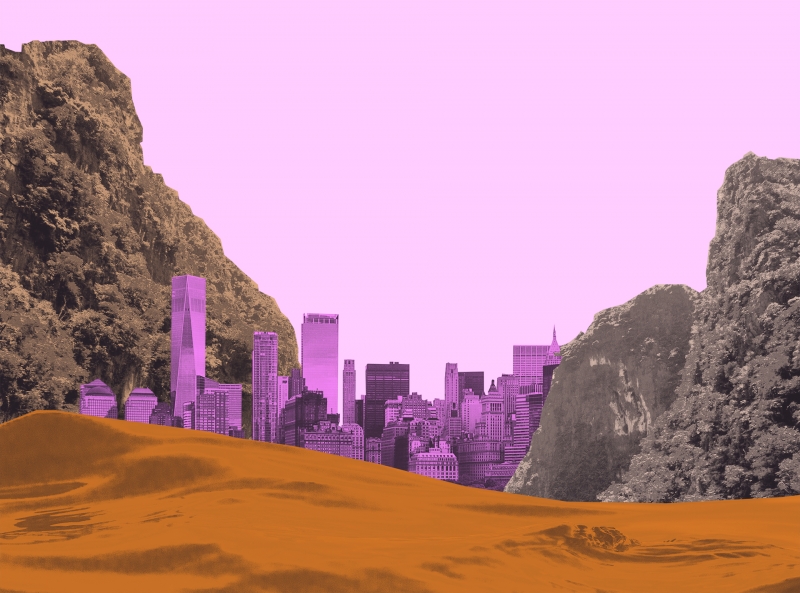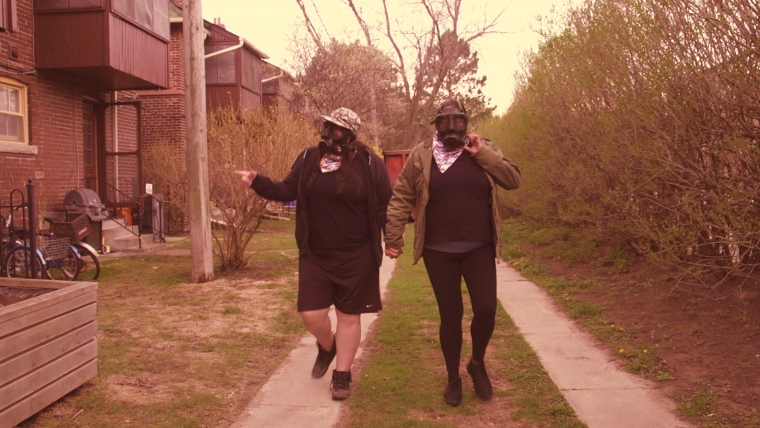Climate Emergency > Emergence, a Discussion
with T. J. Demos, Molemo Moiloa, Susan Schuppli and Paulo Tavares
Moderated by Margarida Mendes
“The idea that the Climate Collective is coalescing around is considering pushing climate emergency thinking to the emergence of something new. By raising that topic, there’s an implicit criticism of the limits of “emergency” and how it might operate to narrow the temporality of democratic deliberation, and critical and creative thinking around the enormous question of climate breakdown that we are facing today. So, in our words, there’s a real risk of enabling a kind of thought that tends to exclude longer histories of environmental violence that are really crucial to thinking through the challenges of the present.”
— T. J. Demos
The discussion with the Climate Collective members realised online on 30 April was Climate Emergency > Emergence’s preliminary session. Watch the full conversation with T. J. Demos, Molemo Moiloa, Susan Schuppli and Paulo Tavares now, seeking to answer such pressing and varied questions as these following:
-
What kind of world do we want to live in? How can we open this discussion so that is not a narrow technocratic attempt to deliberate?
-
How one can think of forms of reproductive justice through the land and rights of future generations?
-
How indigenous and empirical forms of knowledge are disputed against more conventional forms of scientific knowledge? And how does this bring us to a deeper debate about knowledge making practices, research methodologies and epistemic divides? What gestures of care or what acts of repair should we aim for while we are conscious about the unsettling political and linguistic inequalities of the climate discourse?
-
How we envision the role of visual cultures, media and environmental humanities addressing the problems of scale and representation when it comes to climate issues?
-
What measures are being taken to change the world in the sense that “the restoration of non-human communities depends on the restoration of human communities” (Paulo Tavares)?
-
What regenerative spaces of creation and renewal do we have now to experience new forms of knowledge?
“There’s not an environmental question. Every question is environmental because it’s intersection.”
Paulo Tavares
|
The Climate Emergency > Emergence public programme initiative energises critical analyses and creative proposals in moving beyond catastrophism and toward the emergence of environmentally sustainable futures. Interdisciplinary in breadth and international in scope, the programme is conceptualised by the newly-formed 2021 Climate Collective: T. J. Demos (USA), chair and chief-curator, Molemo Moiloa (South Africa), Susan Schuppli (UK), Paulo Tavares (Brazil), geared toward assembling diverse cultural practitioners working at the intersection of experimental arts and political ecology.
As part of the programme taking place from April until December 2021, the Climate Collective has curated an online video screening series featuring films by a variety of international and local practitioners around themes addressed in the ongoing events. |
“maat Explorations” is a programme framework featuring an ongoing series of exhibitions, public and educational projects delving into the multi-faceted subject of environmental transformation from various scholarly and experimental vantage points – it brings philosophical and political perspectives forward, as well as sociocultural and technological investigations interwoven in speculative and critical practices in the arts and design at large.
Central to the discursive and critical effort of “maat Explorations” is the establishment of the Climate Collective, a rotating group of experts in the expanded field of contemporary art, design and technology that will each year propose a refreshed vision on the connection between creative practices, ecological thought and politics. |
Illustration: Lisa Hartje Moura.
|
The discussion with the Climate Collective members was moderated by Margarida Mendes that will conceive and co-host the first event programme on 29 May. According to her, this next event, which takes place on a Saturday, will address “current conflicts in continental Portugal”, like, for example, lithium extraction, “but understanding the legacies from which they come from … beginning the conversation in former African territories to whom we owe so much of our infrastructural rationale here in Portugal, and try to contextualise how extractivism, even if it is ‘fossil free’, still haven’t change”. |
Margarida Mendes’ research explores the overlap between infrastructure, ecology, experimental film and sound practices – investigating environmental transformations and their impact on societal structures and cultural production. She has curated several exhibitions and was part of the curatorial team of the 4th Istanbul Design Biennial (2018) and the 11th Gwangju Biennale (2016). She consults for Sciaena, an environmental NGO working on marine policy and deep-sea mining and has co-directed several educational platforms, such as escuelita, an informal school at Centro de Arte Dos de Mayo – CA2M, Madrid, and the ecological research platform The World in Which We Occur / Matter in Flux. |







